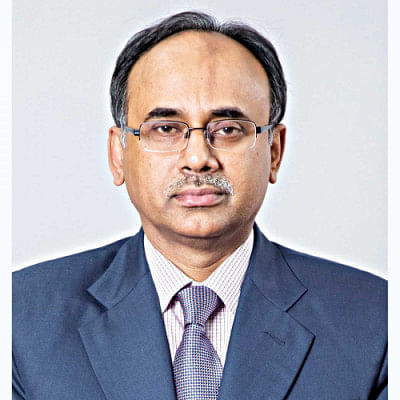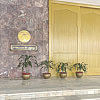Kamal’s right-hand man new BB governor

Abdur Rouf Talukder, the finance secretary, was yesterday announced as the new governor of the central bank, replacing Fazle Kabir, whose six-year tenure ends next month.
Talukder, whose four-year term starts on July 4, is taking charge at a time when the Bangladesh Bank is expected to take a central proactive role in snuffing out the twin economic challenges of inflation and strained foreign exchange reserves.
"This is the right time for him to become a governor -- he will get enough time to learn and show results," Finance Minister AHM Mustafa Kamal told The Daily Star yesterday.
Talukder, who has been stationed in the finance division for more than 18 years, was the finance secretary when Kamal took charge of the finance ministry in January 2019.
He was a dependant sounding board to Kamal as he mobilised resources to prevent the economy from a hard landing during the global coronavirus pandemic.
Asked what his expectations were from the 57-year-old, Kamal said: "I believe in the autonomy of the central bank. It is not right of me to impose my beliefs on him. I just hope he works with the independence and freedom that is afforded to the Bangladesh Bank as per the laws of the land and does what is best for the people of Bangladesh."
Experts welcomed Talukder's appointment.
"It is an appropriate choice," said Ahsan H Mansur, chairman of Brac Bank.
Talukder, who holds an MSc degree in Development Management from the University of Birmingham and an MBA from the Institute of Business Administration of the University of Dhaka, is experienced in financial management and already sits on the board of the BB.
"He knows the issues facing the central bank," said Mansur, who was previously a division chief at the International Monetary Fund headquarters in Washington DC.
The challenges include bringing good governance in both the banking and the non-bank financial institutions sectors.
"The NBFI sector is virtually bankrupt."
But for Talukdar, the most immediate challenge is in bringing some semblance of steadiness to the unstable foreign exchange market.
On June 2, the BB on paper has allowed the taka to float and is letting the market determine the exchange rate vis-à-vis the US dollar. But in reality, the BB is still intervening and selling dollars.
"As a result, there is no market clearing and the interbank transactions are very thin. Banks are unable to find enough dollars to settle the letters of credit. A lot of import bills remain unsettled and it is creating a bad impression of Bangladesh in the international financial community."
Mansur, also an executive director of the Policy Research Institute of Bangladesh, hopes the incoming BB governor would act more decisively on this.
"If I can stabilise the exchange rate, it will stem the foreign exchange loss."
He also hopes Talukdar, who joined the civil service in 1988, would do away with the interest rate cap.
"The money market is going through a trudge because the monetary policy is simply non-operative. And that is due to the interest rate being fixed. There is no monetary transmission that is possible in the current circumstances."
The government would be borrowing Tk 1.06 trillion from the money market and already the treasury bond rate for the 10-year bond is 8 percent-plus, he said.
"With this additional borrowing in the tight money market, this will reach 9 percent or more. How will that be compatible with private sector lending? So he has to address the incompatibility of the interest rate structure with the market situation."
With the monetary policy being inoperative, Talukder is unlikely to have much success in tackling the runaway inflation, which hit an 18-month high in April.

 For all latest news, follow The Daily Star's Google News channel.
For all latest news, follow The Daily Star's Google News channel. 








Comments